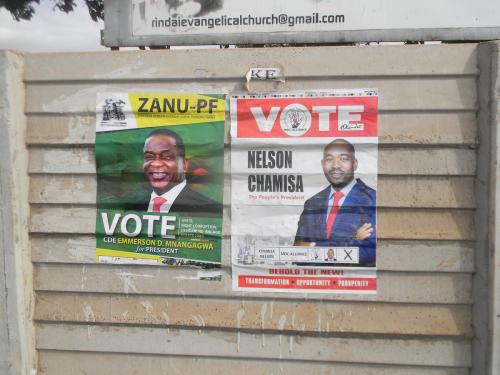Russian Foreign Minister Sergey Lavrov gave a lengthy press conference on January 26, in which he reflected on the performance of Russian diplomacy in 2015. Among a number of issues, he addressed Moscow’s obligations under the December 1994 Budapest Memorandum on security assurances for Ukraine.
Mr. Lavrov was asked how, given Russia’s violation of Ukraine’s territorial integrity and its failure to observe international agreements, Russia’s neighbors should feel secure. He responded: “If you’re referring to the Budapest Memorandum, we have not violated it. It contains only one obligation—i.e., not to use nuclear weapons against Ukraine. No one has made any threats to use nuclear weapons against Ukraine.”
That statement is patently and absurdly false.
Violating Moscow’s commitments
The Budapest Memorandum was signed by the presidents of Russia, the United States, and Ukraine and the prime minister of the United Kingdom. In the document, Russia, the United Kingdom, and the United States reaffirmed their commitments:
- “to respect the independence and sovereignty and the existing borders of Ukraine;”
- “to refrain from the threat or use of force against the territorial integrity or political independence of Ukraine;”
- “to refrain from economic coercion designed to subordinate to their own interest the exercise by Ukraine of the rights inherent in its sovereignty;”
- to provide assistance “if Ukraine should become a victim of an act of aggression or an object of a threat of aggression in which nuclear weapons are used;” and
- “not to use nuclear weapons against any non-nuclear-weapon state party to the Treaty on the Non-Proliferation of Nuclear Weapons, except in the case of an attack on themselves, their territories or dependent territories, their armed forces, or their allies, by such a state in association or alliance with a nuclear weapons state.” (Ukraine had just acceded to the Non-Proliferation Treaty as a non-nuclear weapons state.)
Mr. Lavrov was correct that Russia has not used nuclear weapons against Ukraine. But Russia used military force to seize and illegally annex Crimea, and it supported armed separatism in eastern Ukraine, including with leadership, funding, heavy weapons, and intervention by regular units of the Russian army. Moscow has also imposed a trade embargo on Ukraine. Those actions violate most provisions of the Budapest Memorandum.
President Boris Yeltsin freely signed the memorandum in 1994. It was a key element in achieving a major Russian and U.S. objective: ensuring the elimination of all nuclear strategic weapons in Ukraine. (Understandably, many Ukrainians now question the wisdom of giving up those nuclear arms.)
Moscow even violated the final commitment in the memorandum—the commitment to “consult in the event a situation arises which raises a question concerning these [Budapest Memorandum] commitments.” When Ukraine called for such consultations in early March 2014, Mr. Lavrov boycotted them. Secretary of State John Kerry, British Foreign Secretary William Hague, and Ukrainian Acting Foreign Minister Andriy Deshchytsia met without him.
[Russia’s] actions violate most provisions of the Budapest Memorandum.
Ludicrous explanations
At the time, Mr. Lavrov’s ministry offered the ludicrous explanation that Russia had not signed the Budapest Memorandum with the then acting government of Ukraine, and thus was not bound to observe it. Under that logic, each and every time a government changes in any state in the world, Russia would have to reconfirm all of its agreements with the new government. International agreements are between states, not between governments.
One other oddity about the Russian foreign minister’s comment: He was not asked specifically about the Budapest Memorandum, and he could have side-stepped mentioning it—as he has artfully side-stepped many press conference questions in the past.
Mr. Lavrov is far from stupid, and he surely understands the commitments that Russia undertook in the memorandum. What does it say about the mendacity of Russian diplomacy and its contempt for international opinion when the foreign minister says something that can be proven wrong with less than 30 seconds of Google fact-checking?
Note: During his U.S. government service, Pifer helped negotiate the Budapest Memorandum.
The Brookings Institution is committed to quality, independence, and impact.
We are supported by a diverse array of funders. In line with our values and policies, each Brookings publication represents the sole views of its author(s).




Commentary
Mr. Lavrov, Russia, and the Budapest Memorandum
January 28, 2016